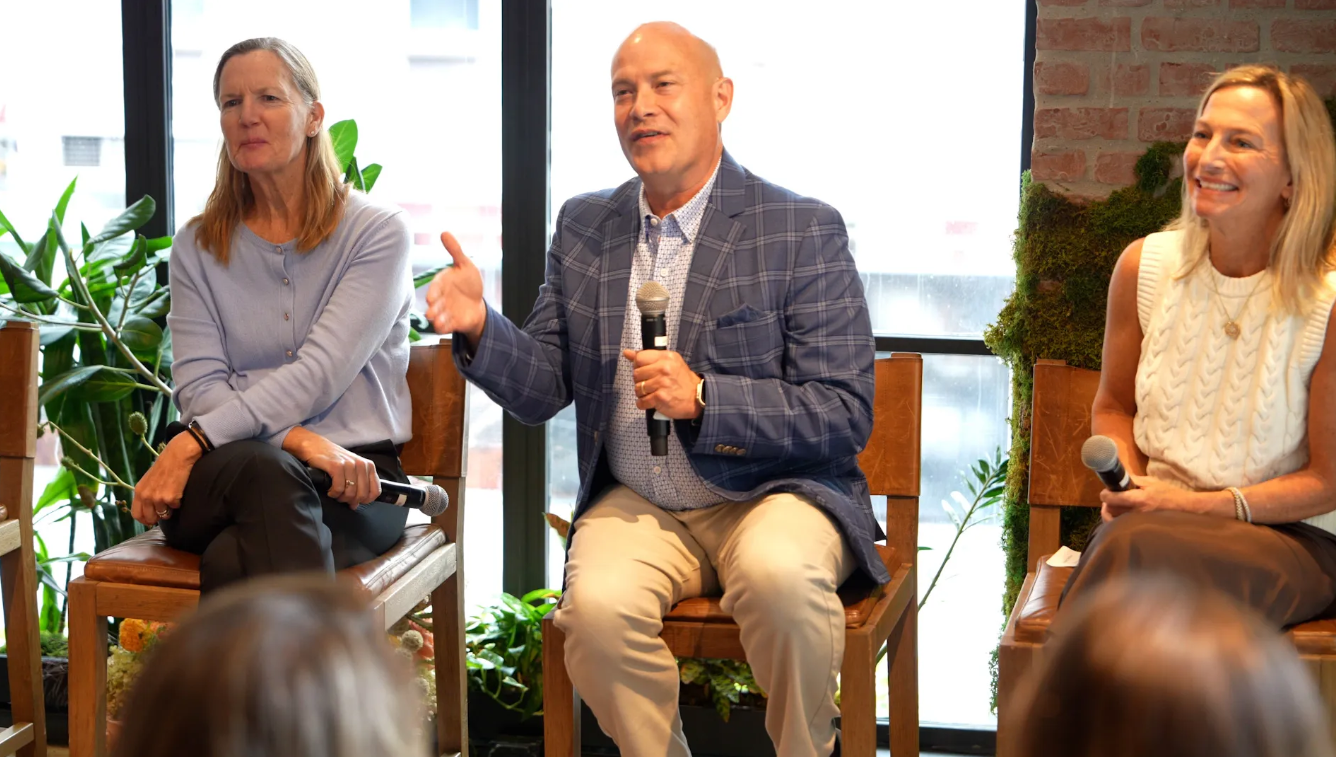Climate Week Call-to-Action: Mainstreaming Sustainability to Make Real Impact
By Alison DaSilva, Global Managing Director, Purpose & Impact
10/04/24

Climate Week marks one of the biggest sustainability events of the year, when thousands of government, NGO and business leaders come together to promote climate action. Those familiar with the event will recognize the ceremonial markers of Climate Week: activist protesters demanding more, gridlock traffic across New York and a week of new pledges and alliances to address the climate crisis.


For those unfamiliar with Climate Week, the event can be elusive. To help bring this topic outside of its industry bubble and take Climate beyond Climate Week, we partnered with climate brand The Cool Down. Together, we convened 50 companies to have a conversation about mainstreaming sustainability for consumers. Our intimate event featured a panel including the NBA and P&G to discuss how brands large and small are innovating with sustainability and communicating with consumers to drive real action and impact. Here’s what we learned:
Know your audience and what they care about: Every consumer has a different set of values, and brands must dig deep to understand how those values intersect with sustainability. Gen Z, for example, largely prefers to buy from sustainable brands – but they are also incredibly price conscious as they’ve come of age during multiple financial crises. It makes sense, then, that this generation has driven the explosion in thrifting and secondhand fashion; this is a shopping experience that marries their values of sustainability and price sensitivity.
No tradeoffs: It’s time to flip the script on either/or. Products can be sustainable and economical or more effective or longer lasting. Take solar energy, for example – it's now the least expensive source of electricity in most places around the world. The better we can quantify how a sustainable solution will drive other levers of value, like cost or performance, the more we can drive widespread adoption of these solutions.
Semantics matter: Consumers don’t understand net-zero, science-based targets or highly scientific sustainability topics. We can’t greenwash, but we can’t overcomplicate these messages. Brands must distill their sustainability messaging into human-speak (how would you explain this to a middle schooler or grandparent?) and provide technical details for those audiences who want to learn more.
Additional Highlights from Climate Week 2024
Our team was on the ground at Climate Week, attending sessions around New York City to hear about where action is most urgently needed and the role. Here are our key takeaways for companies:
- Optimism Paired with Urgency: The theme of urgency is not a new one at climate-focused events, though what felt unique was an overarching spirit of hope for the future – with collective action, collaboration and commitment, there is climate optimism. Speaking at Axios House, Former Vice President Al Gore said, “we can win this [the climate crisis]…but will we win it in time?”
- US Election Looms Large: With less than six weeks to go until Election Day, the US Presidential race loomed large over Climate Week; speaking at Axios House, Former Secretary of State John Kerry said, “there will be a massive differential in climate outcomes” based on this election.
- The Clean Energy Transition: The world is making substantial progress on solar and wind energy and electric batteries; last year, venture capital invested $2 trillion in clean energy compared to $1 trillion in fossil fuels. There’s also renewed interest in nuclear power to meet skyrocketing electricity demand from data centers and artificial intelligence. Today, we have clean energy alternatives that are cleaner, better and less expensive (one speaker pointed to solar energy being the cheapest electricity in history), but we need policies that will accelerate the transition.
- No Progress without Partnership: The importance of collaboration at all levels was reiterated throughout the week. To achieve climate goals, we are reliant on one another; companies need to consider who is in their climate shadow and forge partnerships that are beneficial from both a business and environmental perspective. Expect to see even more “coopetition” – cooperation and competition between companies – on pressing climate issues.
- Show the Value of Sustainability: It’s time to flip the script on either/or. Investments, products, and programs can be sustainable and economical or more effective or longer lasting. The better we can quantify how a sustainable solution will drive other levers of value, like cost or performance, the more we can drive widespread adoption of these solutions.
While Climate Week NYC 2024 has concluded, our work continues. We're inspired, energized, and committed to continuing the conversation and driving action at Zeno and with our clients.



